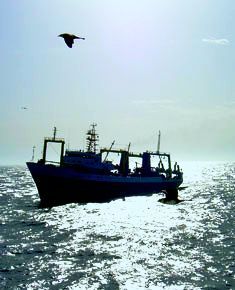The government will recommend a 3.5% inflation target for the end of 2006, Finance Minister Tibor Draskovics announced
Published:
1 November 2004 y., Monday
The Hungarian government will recommend a 3.5% inflation target for the end of 2006, Finance Minister Tibor Draskovics announced. Draskovics said annual inflation will be 6.8%–6.9% for 2004, and will continue to slow in 2005 to a yearly 4.5%. National Bank (MNB) President Zsigmond Jбrai said the 3.5% target for 2006 is feasible provided fiscal policy remains strict.
52.6% of revenue in the 2005 budget carries medium or high risk, the State Audit Office (БSz) found. The office said the government’s target for GDP growth of 4% in 2005 is realistic, but not without risk, and added that the general government deficit target of 4.7% of GDP is riskier. The office also said the 2005 budget is not detailed enough in its description of expenditures related to public-private partnerships (PPPs).
The government plans to present an alternative to an БSz proposal that would force it to make a new budget if the original’s targets are exceeded by 2.5%. The government proposes allowing a 5% overshoot of budget targets. Forcing the government to create a supplementary budget would mean the new budget has to be approved by Parliament.
The government issued Ђ1 billion in eurobonds, State Debt Management Rt (БKK) announced, saying it would use the issue to refinance debts maturing in 2004. The terms of the issue are the best of all government-issued eurobonds, the БKK press release stated. They mature in seven years, and pay annual fixed interest of 3.625%.
The government earmarked Ft 17 billion (Ђ69 million) for housing subsidies in next year’s budget. The budget includes a Ft 3.4 billion allocation for a new type of rent subsidy aimed at young people with few financial resources. Another Ft 4 billion is set aside for a fund providing state guarantees for housing loans.
Šaltinis:
bbj.hu
Copying, publishing, announcing any information from the News.lt portal without written permission of News.lt editorial office is prohibited.
The most popular articles
 The financial crisis is having a serious impact on low-income countries.
more »
The financial crisis is having a serious impact on low-income countries.
more »
 The agreement was welcomed by the EU, which has led efforts to crack down on loose banking practices that caused the financial crisis.
more »
The agreement was welcomed by the EU, which has led efforts to crack down on loose banking practices that caused the financial crisis.
more »
 On 31 March this year, the boards of AB Bank SNORAS and AB “Invalda” approved of the purchase and sales transaction of AB “Invalda” financial group's companies.
more »
On 31 March this year, the boards of AB Bank SNORAS and AB “Invalda” approved of the purchase and sales transaction of AB “Invalda” financial group's companies.
more »
 MEPs will vote on Thursday 2 April on a first reading agreement on the voluntary EU Ecolabel (“EU flower”) system for environment-friendly products to become less costly and bureaucratic to use.
more »
MEPs will vote on Thursday 2 April on a first reading agreement on the voluntary EU Ecolabel (“EU flower”) system for environment-friendly products to become less costly and bureaucratic to use.
more »
 The fourth quarter of 2008 was not so good for the banking industry, and the financial conditions of commercial banks and savings and loans is expected to further deteriorate for the rest of 2009 and the first part of 2010, according to LACE Financial Corp.
more »
The fourth quarter of 2008 was not so good for the banking industry, and the financial conditions of commercial banks and savings and loans is expected to further deteriorate for the rest of 2009 and the first part of 2010, according to LACE Financial Corp.
more »
 MEPs recently gave the green light to a new trade deal between Europe and Caribbean countries.
more »
MEPs recently gave the green light to a new trade deal between Europe and Caribbean countries.
more »
 New VoIP Features Boost Flexibility, Mobility, Cost Savings for Organizations Seeking to Untether Workers.
more »
New VoIP Features Boost Flexibility, Mobility, Cost Savings for Organizations Seeking to Untether Workers.
more »
 According to the revised data, in IV quarter 2008, GDP at current prices made LTL 28578.8 million and against IV quarter 2007 decreased by 2.2 per cent.
more »
According to the revised data, in IV quarter 2008, GDP at current prices made LTL 28578.8 million and against IV quarter 2007 decreased by 2.2 per cent.
more »
 The EP Fisheries Committee rewrote the rules on recreational fishing in its consultative report, adopted Tuesday, on a proposed “control regulation” to ensure compliance with common fisheries policy (CFP) rules.
more »
The EP Fisheries Committee rewrote the rules on recreational fishing in its consultative report, adopted Tuesday, on a proposed “control regulation” to ensure compliance with common fisheries policy (CFP) rules.
more »
 In a measure of the Union’s strong growth prior to the financial crisis, the demand for EU trademark rights has shot up in recent years, creating an unexpected budget surplus.
more »
In a measure of the Union’s strong growth prior to the financial crisis, the demand for EU trademark rights has shot up in recent years, creating an unexpected budget surplus.
more »